Contour gauges are tools used to measure, copy and transfer the pattern of an object into another material as accurately as possible. According to Finish Carpentry TV, it is a handy tool, especially if you are doing trim works.
Contour gauge is a handy tool, especially if you are doing trim works.
Finish Carpentry TV
There are contour gauges that are made of either plastic or stainless steel pins. Plastic pins are more compact and durable when it comes to handling. Metal pins, on the other hand, are prone to dislodge out of their housing.
Nevertheless, thanks to the ability of metals to be formed thinly, metal pins will benefit you more in terms of extreme precision. Keep in mind that as the needle gets thinner, the more accurate tracing may be achieved and that is the best strength of metal models.
On the other hand, the working length and profile depth will determine the maximum coverage and capacity of the contour gauge. Commonly, plastic contour gauges come in longer and bigger sizes which is why many users prefer them more. However, if you need to secure both accuracy and wide coverage, it is better to purchase at least both types.
One of the best contour gauges that offer the attributes above is the Saker 10”. It has just the right length for most contouring tasks, the lock mechanism, the right material, the quality, and the accuracy. This model has the right balance between the qualities of a good contour gauge you should be looking for.
General Tools 833 is another choice to have that comes from a famous brand with a great reputation in the contour gauge industry since 1922. It is a plastic contour gauge but compared to most models from other brands, it has thinner pins which somehow allow it to get better precision. It also has the capability to double its 10-inch length, making it flexible for longer contour objects. It is among those choices that is terrific and very easy to use, though it falls short when it comes to locks.
If the features of Saker 10” and General Tools 833 are too much for your needs, you can also rely on the contour gauges of other well-known brands like Wolfcraft and Varsk.
To give you a better insight about the contour gauges of these brands, our team has personally tried and tested their products. We offer you our best verdicts and thoughts after a series of comparisons and tests which is a good start to gather the info you need. Take time weighing each of them on this comprehensive review until you find the best one for you.
Best Contour Gauges Comparison & Rating
Contour Gauges | Features |
1. Saker 10” Contour Gauge


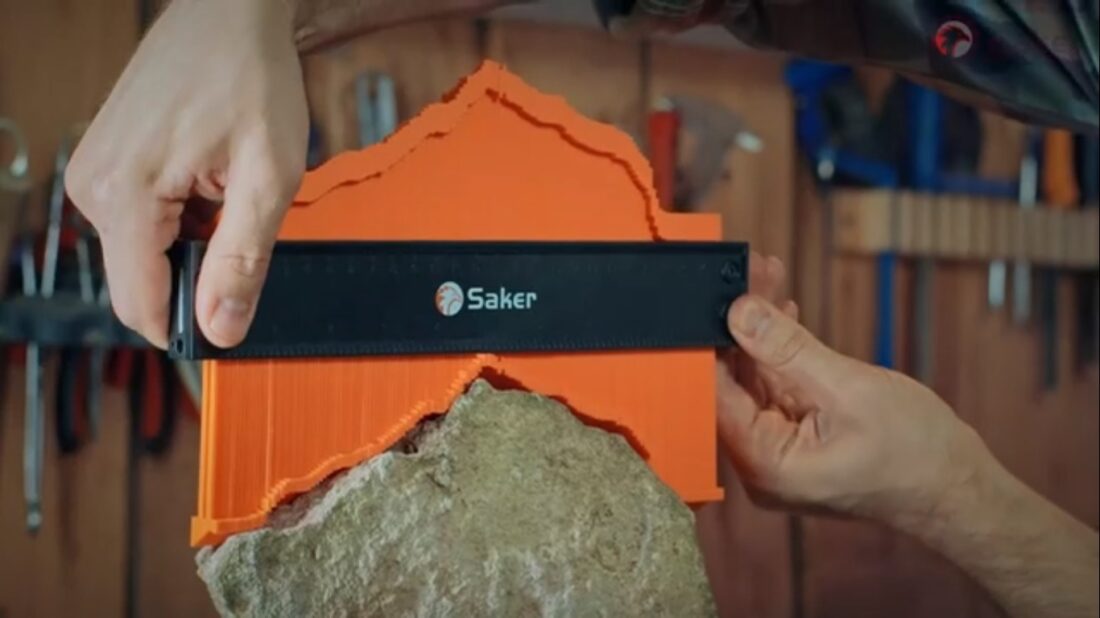

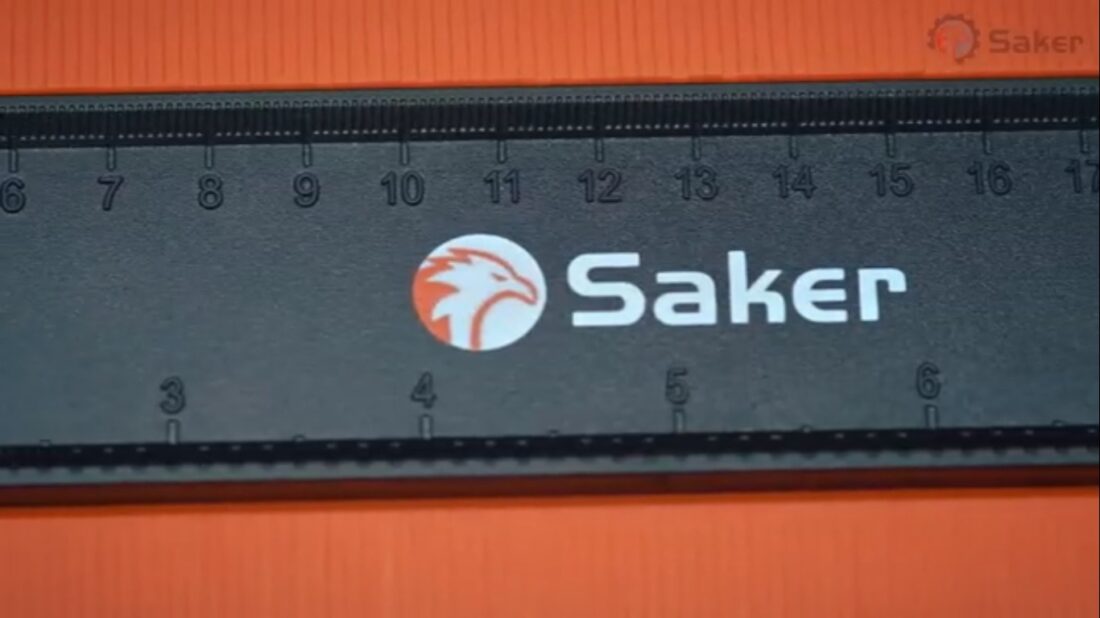
For flat surfaces and extensive applications, this contour gauge is perfect to use. It has a contour ruler that is 10 inches in length and 158 non-scratch teeth that cover objects at 2.4 inches in depth. Flat and thinner object profiles are commonly the subject of this contour. Nevertheless, small diameter pipes will also benefit from this Saker Contour Gauge. It will give you the best and precise contouring performance possible for such a tool.
In terms of ergonomics, it is handy and lightweight as it weighs 7.2 ounces only. Unlike wire versions, Saker pins will not fall out easily due to their plastic components. Contouring is also made easier. Thanks to its metal lock mechanism, the arrangement of the pins will stay in their shape in a compact manner. Its tightness can also be adjusted using the hex key that is readily available upon purchase. Aside from this, it is a wise investment and an all-in contour gauge.
2. General Tools 833 Contour Gauge


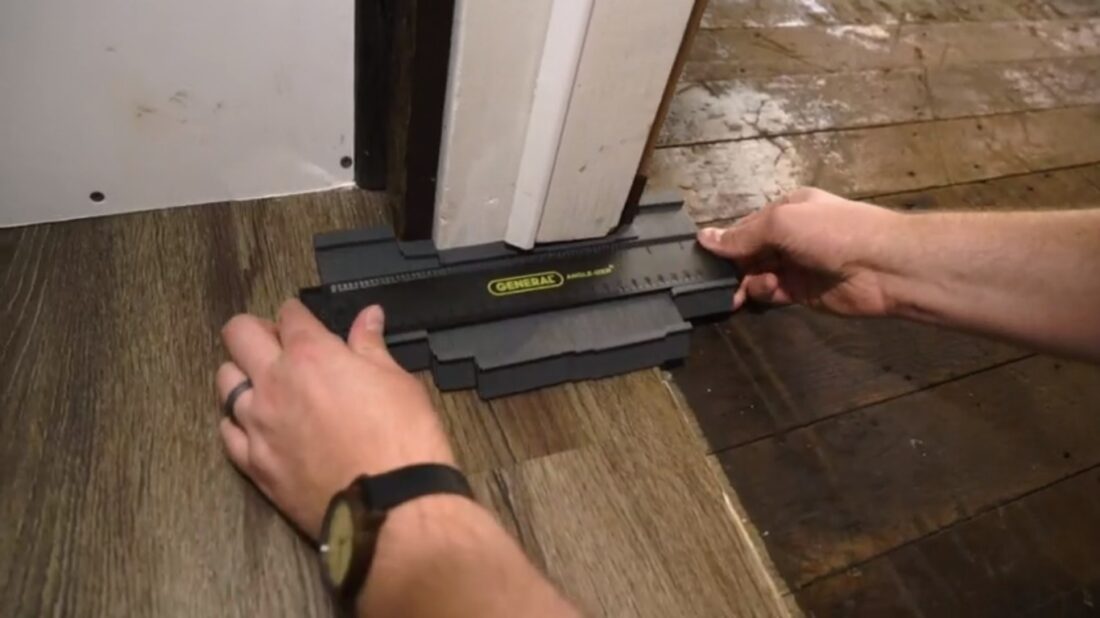
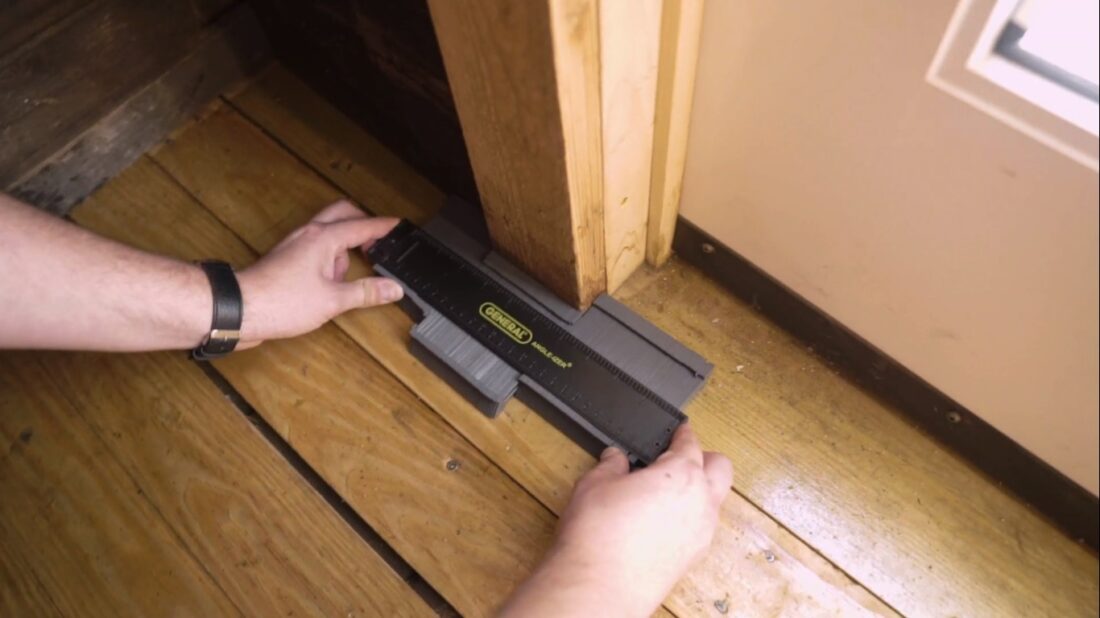
The General Tools 833’s joinable mechanism is a phenomenal feature among contour gauges. From 10 inches, this gauge can be transformed into 20 inches. To do this, simply remove the 4 Philip screws and join another 10-inch General 833. For house baseboards, long contour gauges are the best to use.
The team also tested the usefulness of four magnetic blocks attached at the back of the gauge, and we were impressed at how efficient they are in holding ferrous objects. It sticks metal objects tightly which enables the plastic contour to shape the profile object very well with ease.
Overall, this gauge’s 18 needles per inch resolution is decent enough for most woodworking and tile flooring installation, though not ideal for large pipe contouring. Nonetheless, the best offer of General Tool 833 is that it gives you the freedom to be flexible in choosing your gauge length. Add to this, the solid plastic build quality will definitely last long.
3. General Tools 837 Contour Gauge
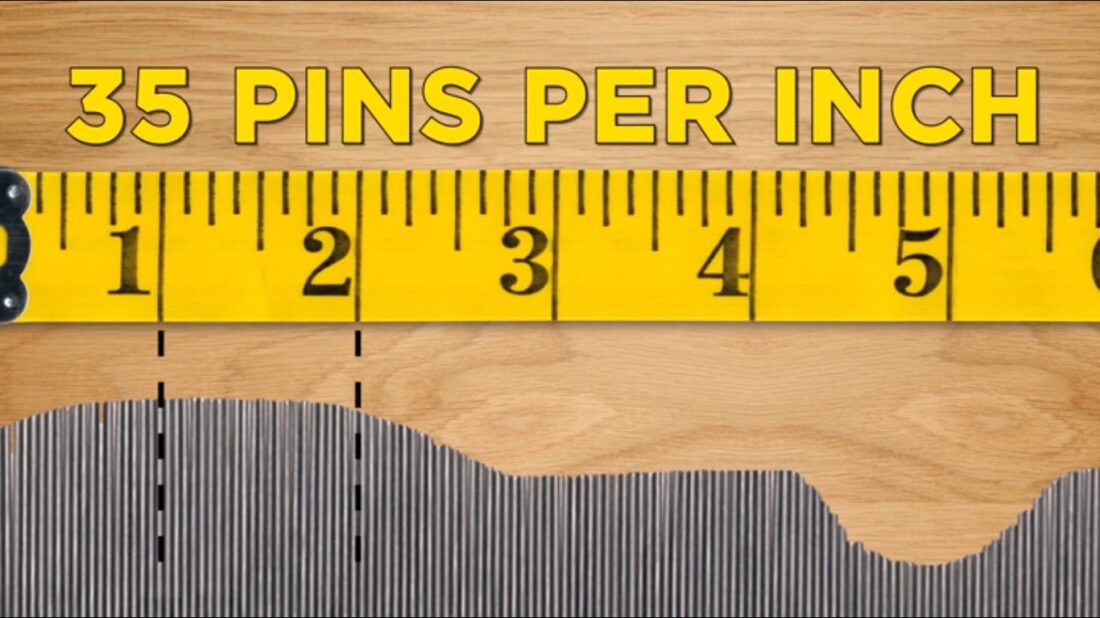
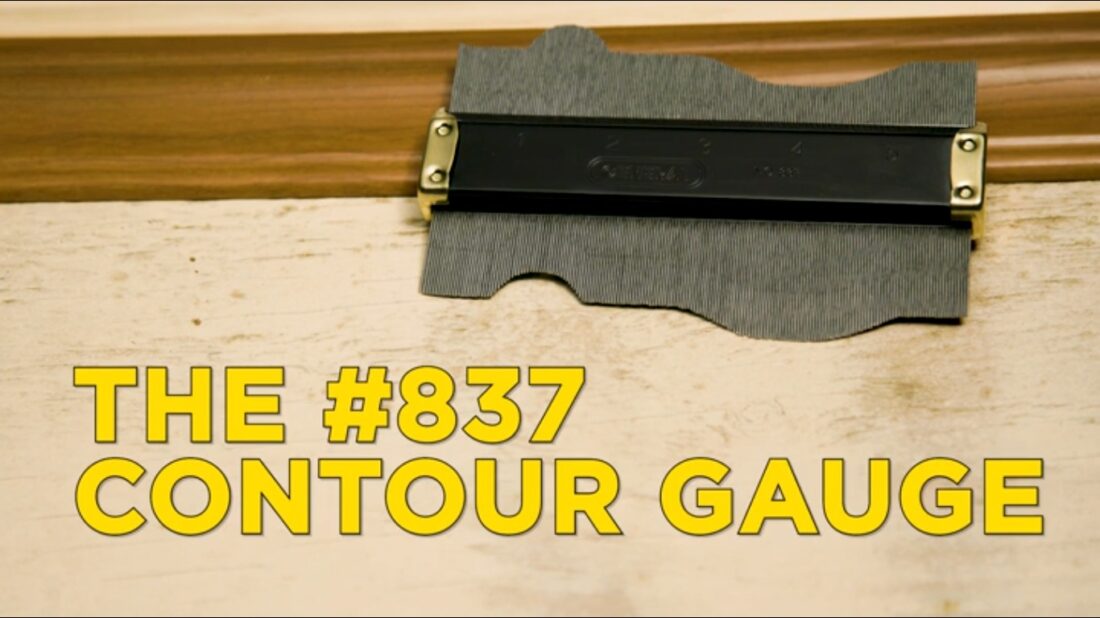
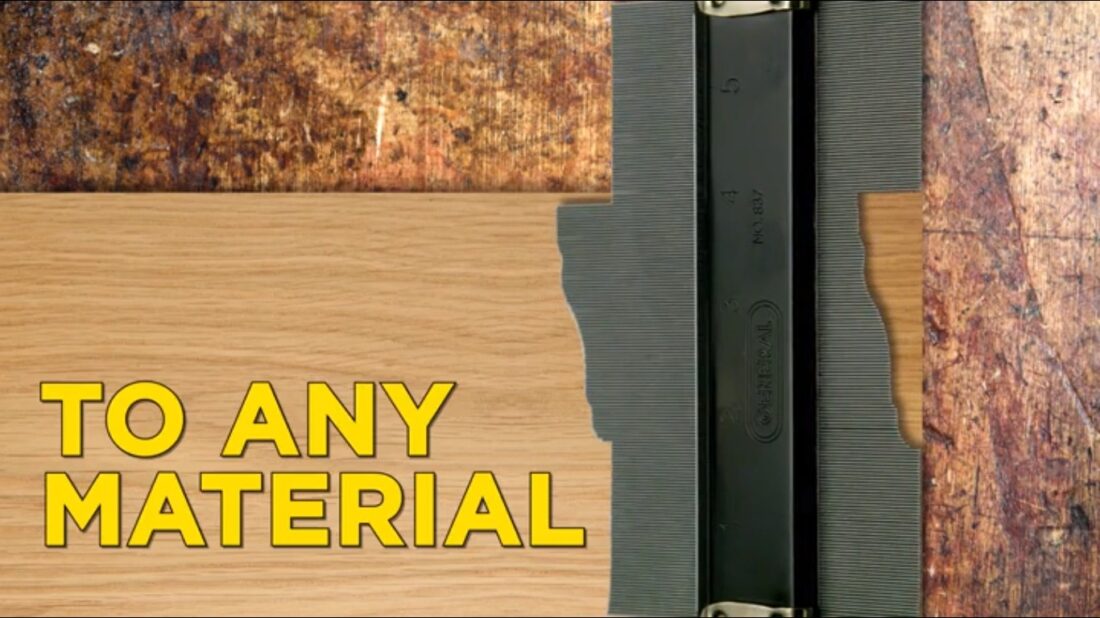
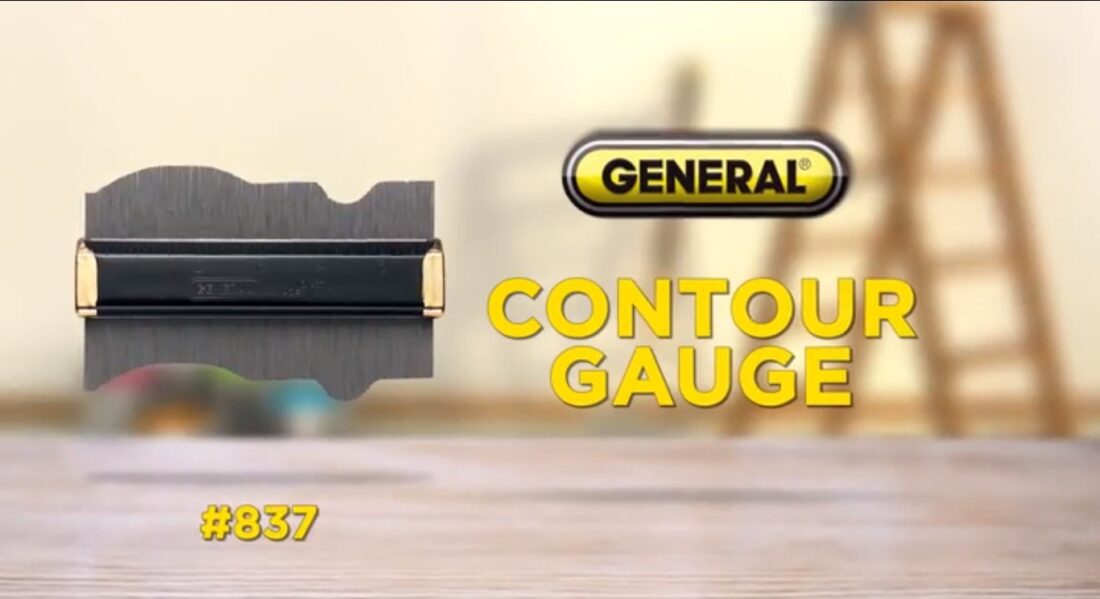
Another best from General Tools is present on the list. So far, the company’s 837 model has the thinnest and deepest pin assembly for this review. Specifically, it has a 0.028-inch resolution which provides a very smooth marking line. It also has an excellent pin depth of 3.5 inches which makes the shaping precise in the best way possible. Add to this, its maximum 6-inch contour depth can hold objects at a deeper level. Combining all of this, General Tools 837 is definitely one of the most precise contour gauges present in the market right now.
However, due to its very thin pin diameter, the team found it a bit stiff when being shaped. It needs some force to get the accurate contour you need. Nonetheless, compared to other models, its precision is top-notch. All in all, the gauge is a great deal for individuals who are obsessed with perfection.
4. Varsk VAR-350 Contour Gauge
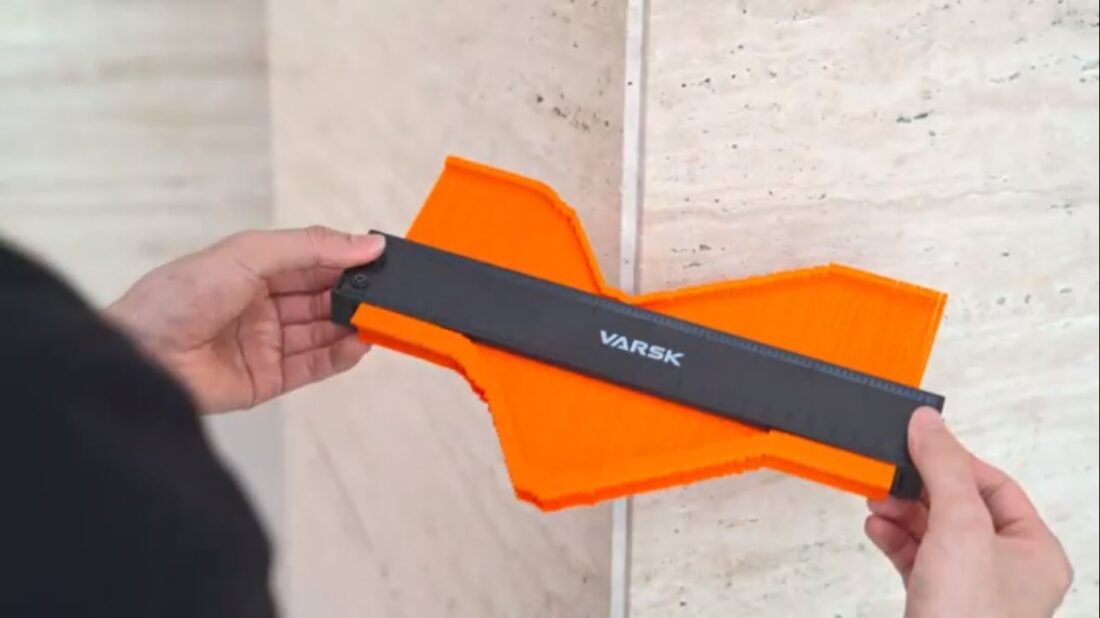
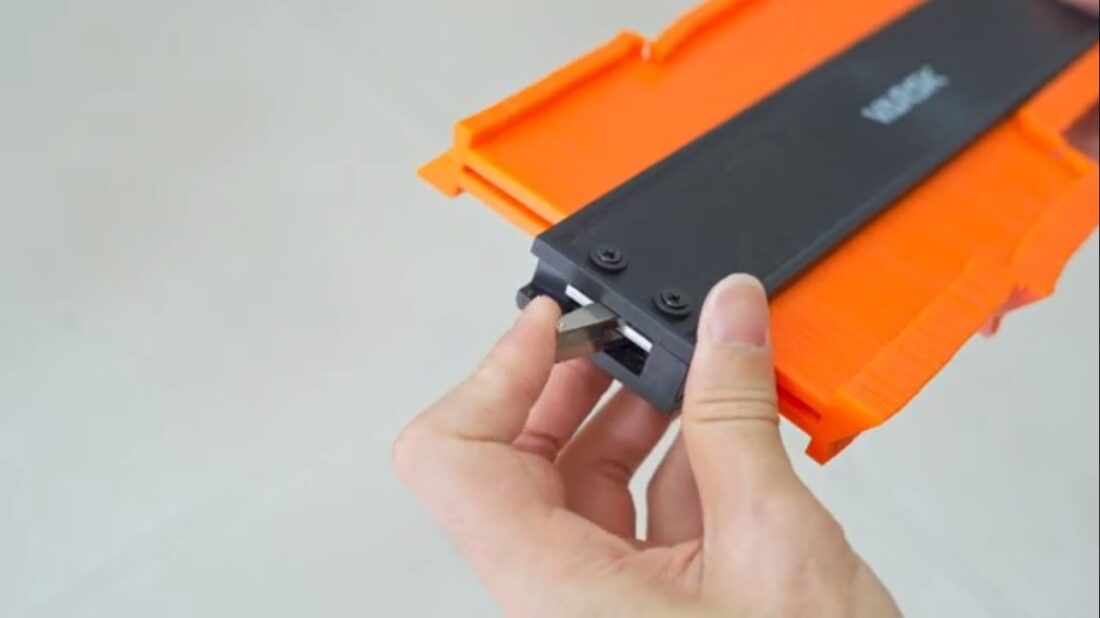
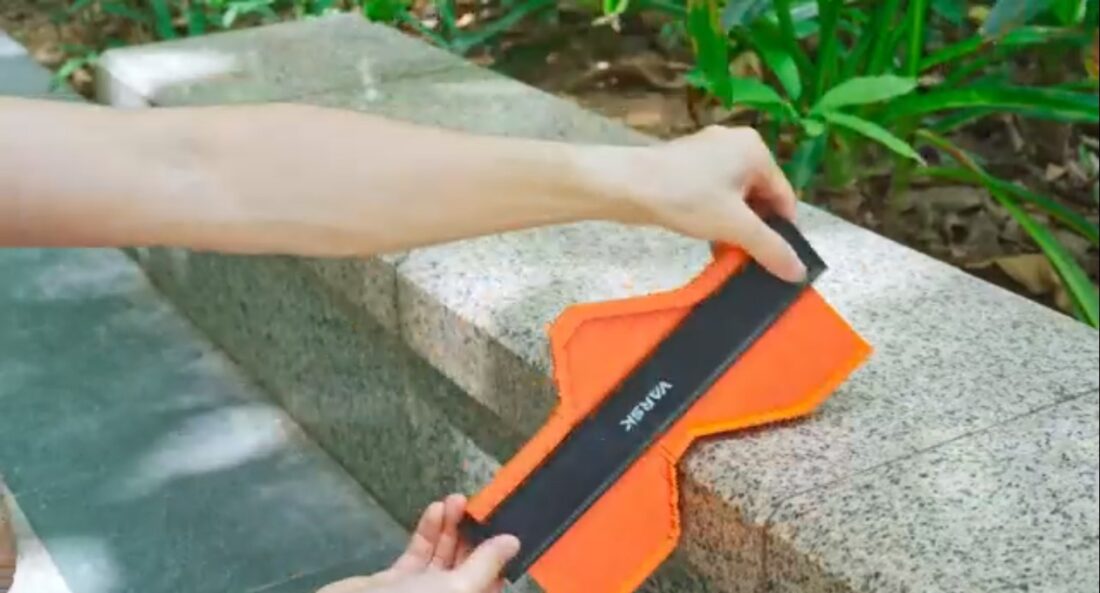

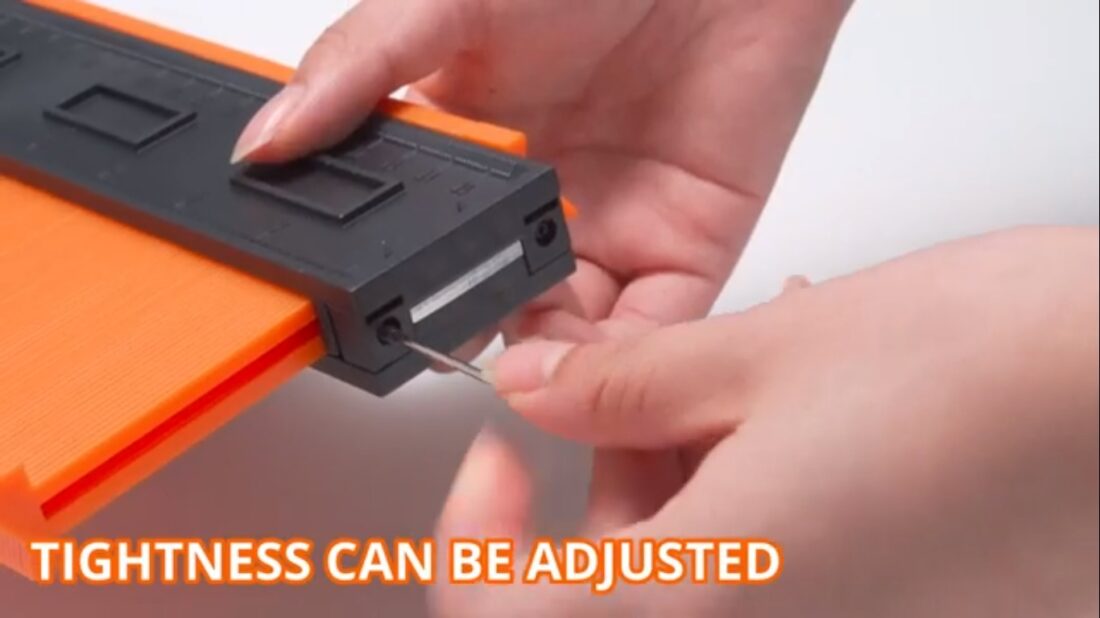
If you will be dealing with your pipes at home, then, one of the most precise contour gauges that we recommend for this task is Varsk VAR-350. This is great for larger diameter of pipes where cautious contouring is required. Not only that, this contour gauge is versatile and fits a wide range of items to work with. Besides its typical 10-inch length, it also has a .05-inch pin thickness which provides a smooth marking of large cuts of works.
As to ergonomics, it is a pretty handy tool. However, its flexible plastic pin could be prone to bends after years of use. Nonetheless, this item will give you your money’s worth. It will deliver great convenience from its handy adjustable tightness feature to clamping lock to its aluminum alloy core. Indeed, one of the best contour gauges that are well-thought and designed with functionality in mind.
5. Wolfcraft 6949000 Contour Gauge
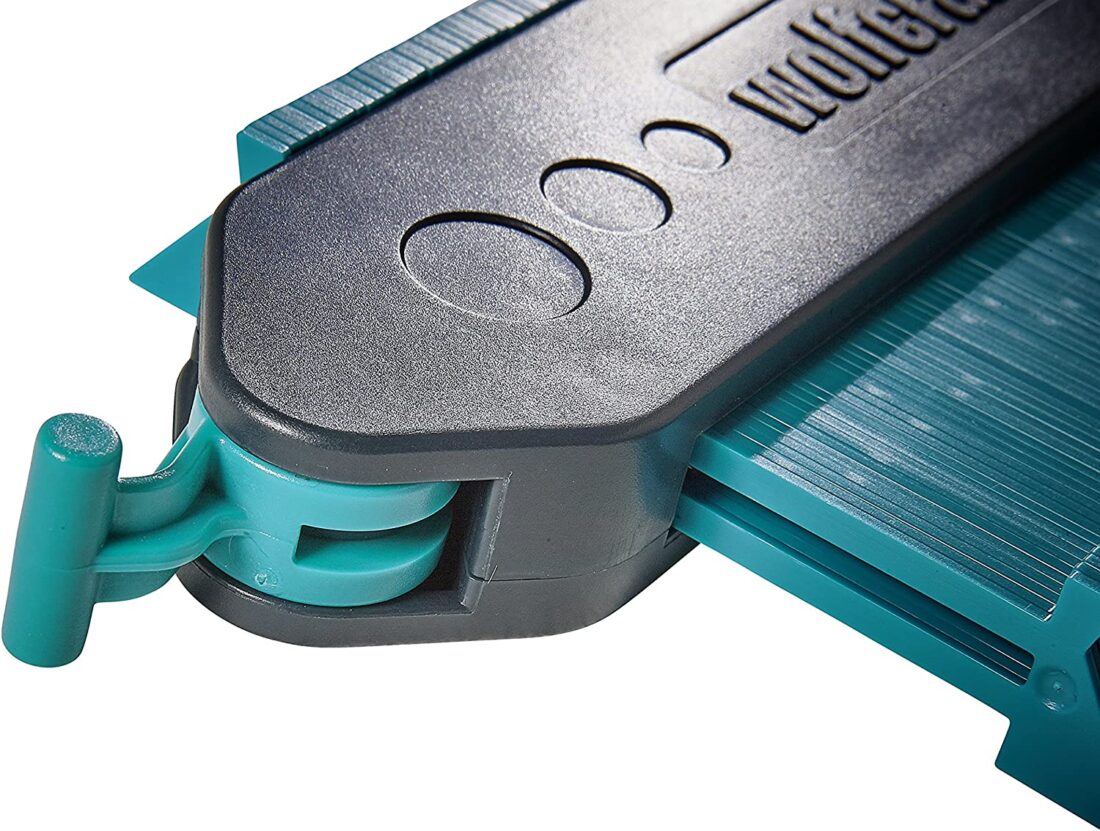
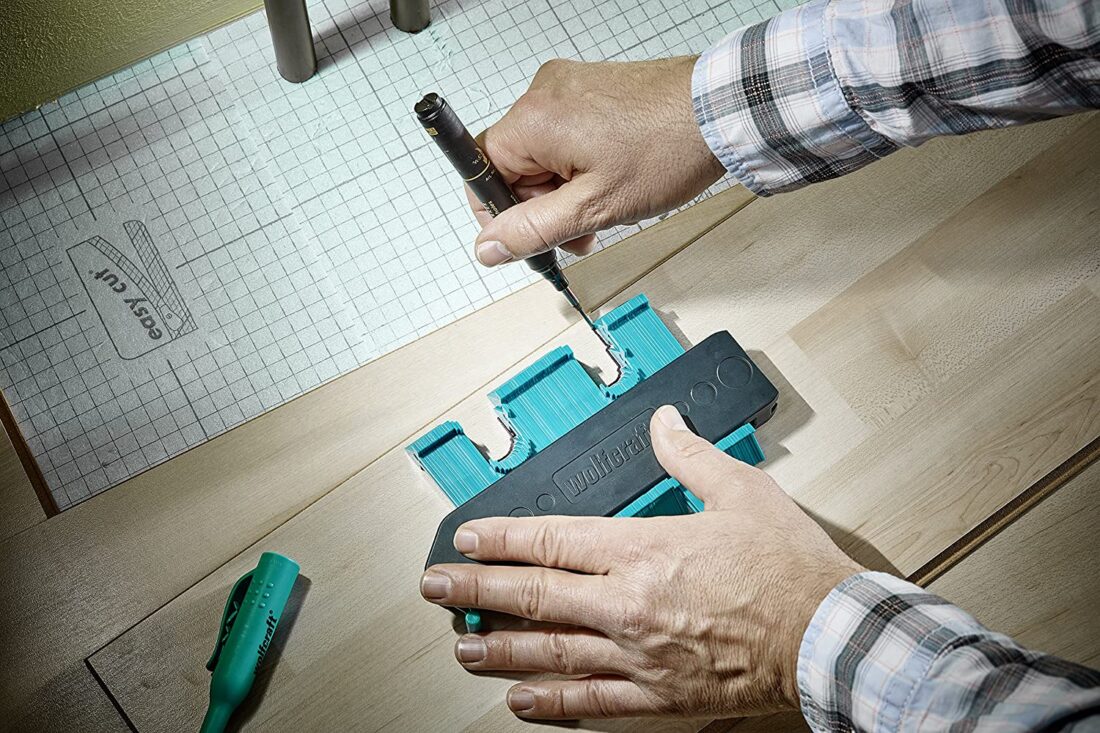
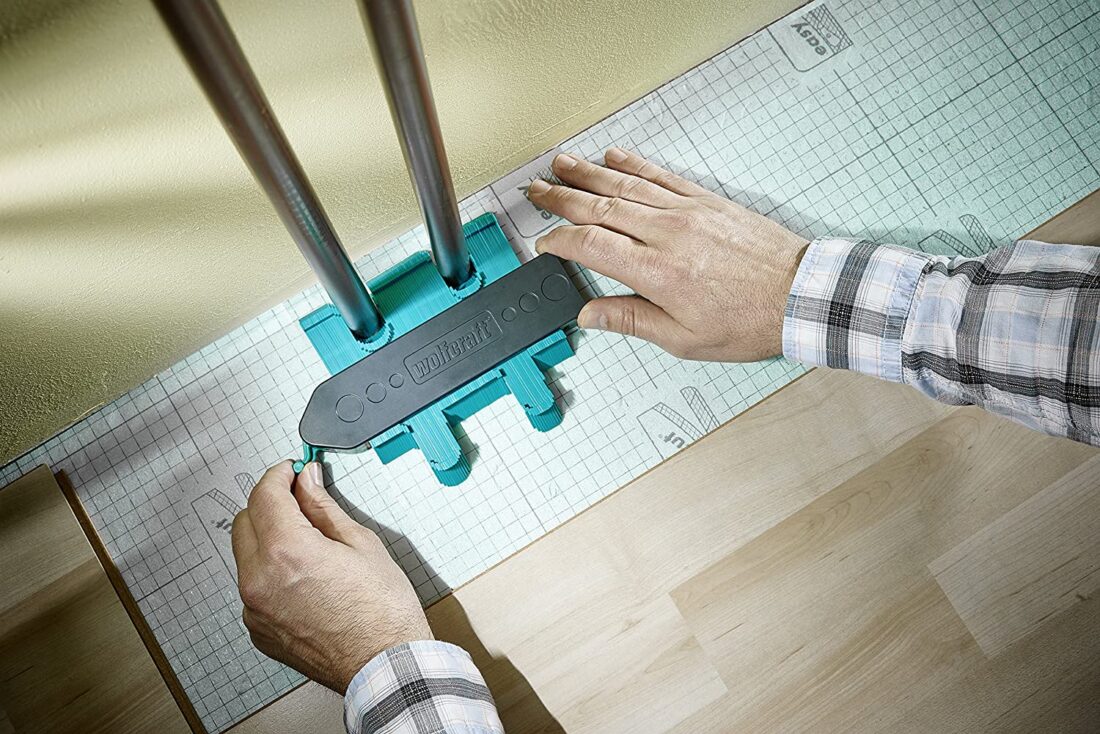
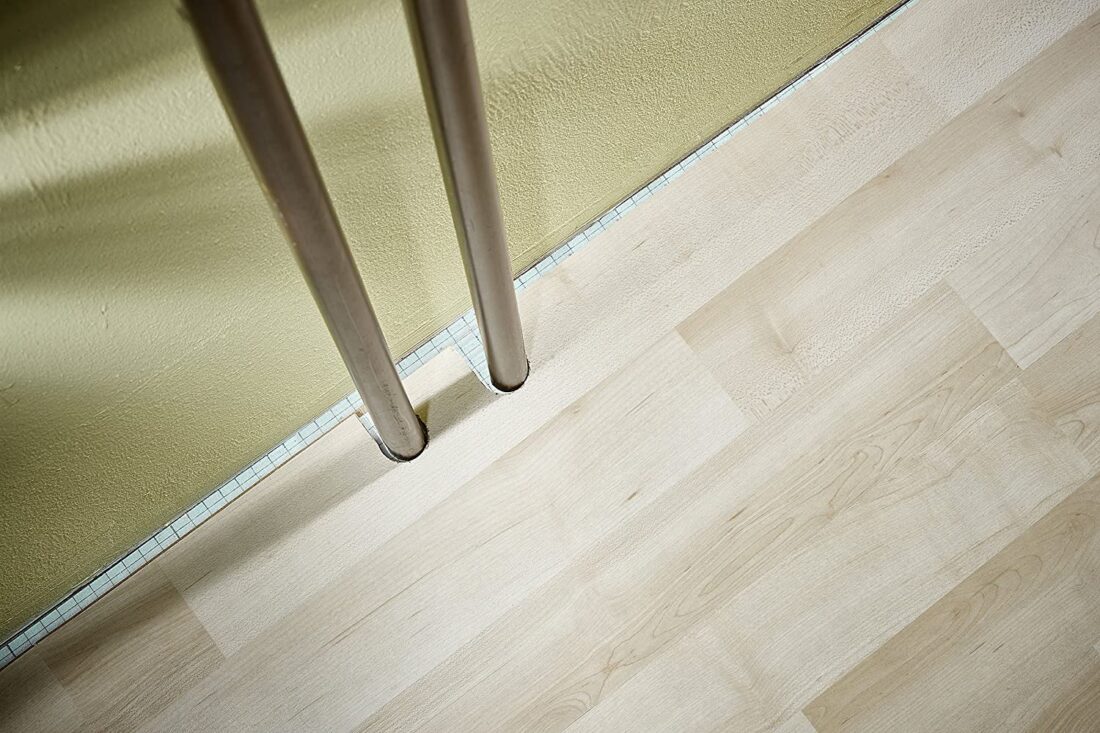
This gauge has a very big clamp and it is an asset for complex profile objects and small diameter pipelines. Furthermore, for these types of contouring, strong pressure on the pins is very crucial to keep the pin shape rigid and intact.This model allows that.
Aside from the clamp, this gauge is built with a pin assembly of 1.255 inch pin depth. This type of pin assembly is clever in completely duplicating the contour of an object.
Moreover, as compared to other gauges, Wolfcraft created a shorter gauge which is half of the typical contour gauge. Nevertheless, its size is specifically efficient in shaping irregular shape lines and very complex objects which big 10-inch contour gauges might find challenging.
Best Contour Gauges - Buyer's Guide
If you will notice, two common pin materials are present in the market nowadays: ABS plastic and stainless steel. Though both of them have their own pros and cons, you need to weigh what’s acceptable and tolerable for you. ABS plastic pins last longer and will never corrode. It also won’t create scratches on the object you’re shaping. However, ABS plastics have a lower resolution than stainless steel. On the other hand, stainless steel pins are thinner and may offer more precise contouring. On the downside, they might produce scratches among very sensitive object surfaces.
The resolution of contour gauge pins can be computed by dividing the length of the contour gauge by its number of pins. Therefore, for highly precise contouring, thinner pins offer a greater resolution. In this case, we can say that metal contour gauges are the best provider of high-resolution contour gauges. For instance, General Tools 837 has 35 pins per inch. This means it can give you even the tiniest detail of the object's shape you are copying.
Most gauges in the market are 10-inch in length. This is the most comfortable length for most contour works. However, for special occasions when you need a shorter contour gauge, it is essential to have an alternative gauge like Wolfcraft 6949000.
Some contour gauges are designed for a specific purpose and feature while others are designed for a wider range of functions. In order to purchase the best choice, flexibility is a concept that will guide you. For ultimate flexibility, we suggest that you have joinable contour gauges. In this case, General Tools 833 is the best joinable contour gauge that we recommend. From its 10-inch length, you can attach another gauge with the same length and brand for you to have a 20-inch contour gauge. Also, look for a model that can easily copy the contour of the object without much exertion of force. This won’t just make your work more convenient but it will also prevent scratches from the surfaces you are copying.
A contour gauge’s lock mechanism controls the tightness or looseness of the pins. For a contour gauge that has the best locking mechanism, we recommend the best strong clamp which the Wolfcraft Contour Gauge offers. With such a feature, you have a reliable contour gauge that can retain shapes and measurement which means accuracy and reliability for you.
Best Contour Gauges - FAQs
A contour gauge is designed to mimic or copy the shape of 3D objects as accurately as possible. It uses pins in order to create silhouettes for the transfer of an object’s shape to another material. To use a contour gauge, simply press the pins against an object. It will automatically move the pins on the other side. Other contour gauges have their locks while others don't. Anyhow, both satisfy the very main purpose of contouring the shape of an object.
Yes, they are. For contour gauges, it is the pin material, pin depth, and pin dimensions that determine its accuracy. Nonetheless, make sure to have a model that has additional features that will suit your needs and will promote the convenience of use such as considerable length and pin locks or clamps.
Absolutely yes. In fact, contour gauges are designed to lessen the time of computing the angle measurements of objects. It is also designed to duplicate the shape of an object and trace it freely to another one. At any shape or design, the contour gauge pins are flexible enough to copy the silhouette of objects.
For easy ergonomics, usage, and durability, plastic pins are your companions. They are more compact and easier to control but are inclined to bend after long use. On the other hand, for more accurate contouring, metal pins are better. However, they are prone to dislodging due to their very thin dimension.











